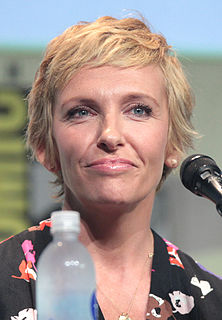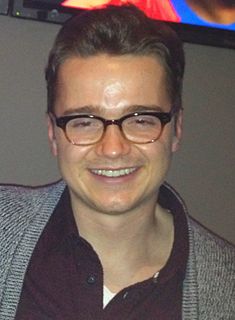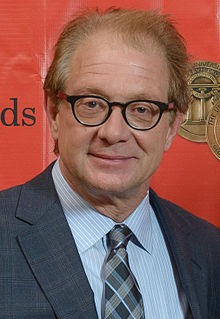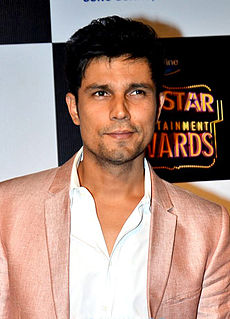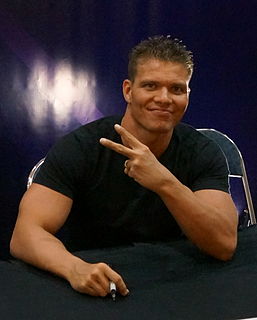A Quote by Joel Kinnaman
I always get sort of an image of what the character is gonna look like and then I kind of go with it.
Related Quotes
There should always be that leeway because if you think of your character as sort of absolutely fixed, then you just try and find actors to come and do exactly that thing, then you're not gonna be working with that actor's own set of internal impulses and who they are, so the best work is always a coming together of the actor and the character.
What I tend to do is to wake about five in the morning-this happens quite often-think about the invention, and then image it in my mind in 3D, as a kind of construct. Then I do experiments with the image...sort of rotate it, and say, 'Well what'll happen if one does this?' And by the time I get up for breakfast I can usually go to the bench and make a string and sealing wax model that works straight off, because I've done most of the experiments already.
You write a character, but in essence, it's just a concept of what it could be, and then actors come in and they have their own sort of interpretations and thoughts. If you respond to those and then go forward with them, then it's kind of like magic to see the idea you had become alive and in the flesh.
It wasn't like this happy-go-lucky experience, shooting Norman movie. It was something I kind of had to, sort of dedicate a certain level of focus and energy to kind of just stay in this headspace that would allow me to access - because it's also a very emotional movie at times. This was the first time I ever played a real character, a fully fleshed out, dimensionalized, multi-faceted character, as opposed to a part. There's not very much opportunity for somebody of my age and my look, so for a character-driven piece like this to come along is a rare thing.
I get cast gay a fair amount throughout my life. It's not the first time. Matt [Letscher] was kind of like, 'Jeff, um, I'm gonna pretend this is real easy and not a problem, but I've never done this at all.' And so you know, we were awkward for a while. And then he said, 'Let's go for it. Come on. I'm gonna pretend you're my girlfriend, my wife. Here we go.' And we had a lot of fun.
Once you click into a character, to a certain degree, you can do a lot else. You can do other stuff, then come back and click right into the character. It's sort of funny that way, the way the mind works. Once it's there, it's sort of there. For the stage, for example, all through the day, you're not onstage. You're living your life, la-la-la, then the lights go down, then boom! All of a sudden, you're in this thing. There's a kind of reflex muscle trigger that happens, and all of a sudden you're back into the role. It's just getting there in the first place that's tricky.
So, the role of a producer is to kind of look at the show, kind of give our takes on what we see, and that'll be prior to the production meeting. Then, we kind of get assigned our matches and our segments, and then we - I like to go and collaborate with talent, and we put together what we see on TV every Monday and Friday.

